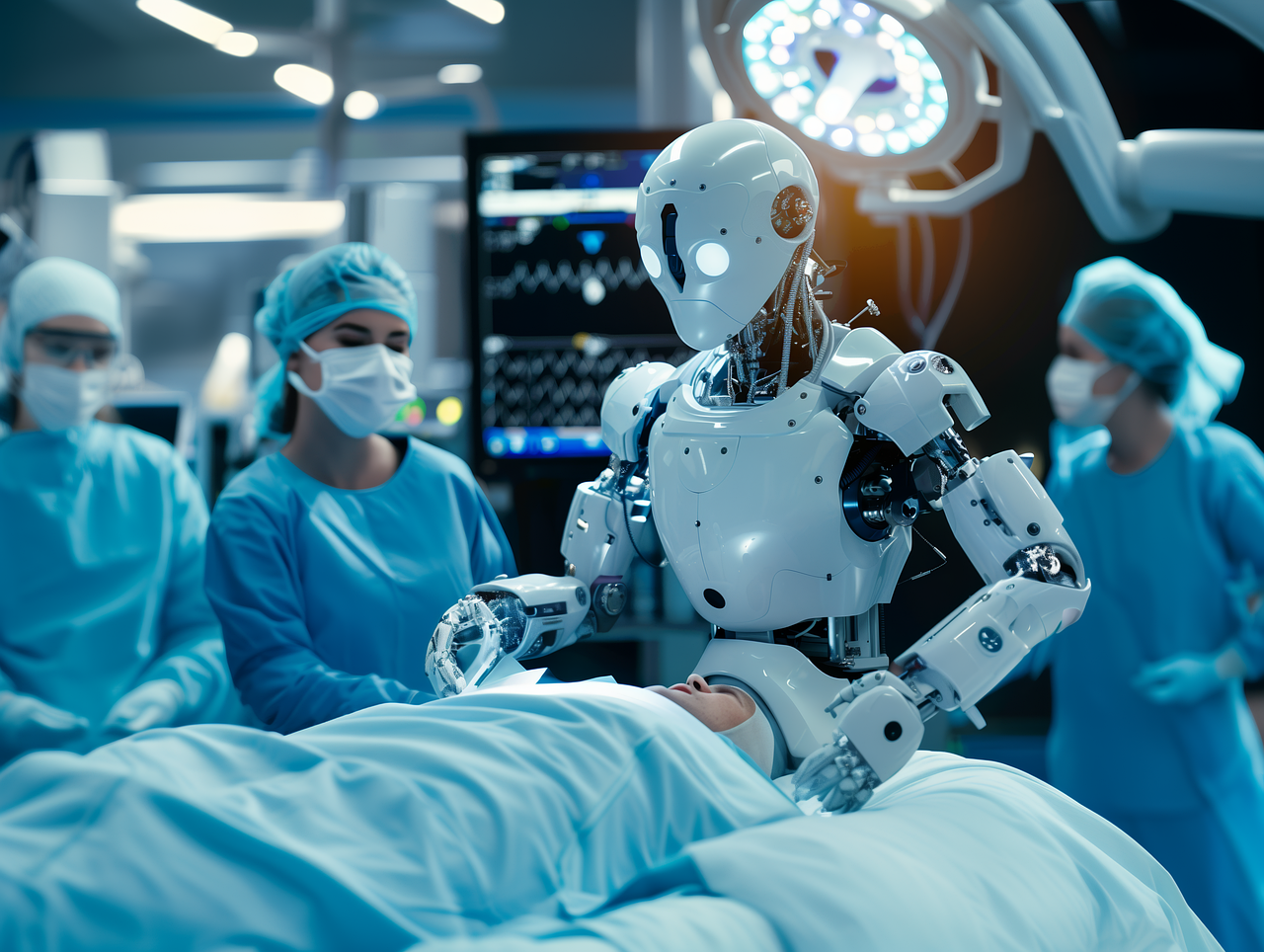Imagine a world in which your doctor can identify a disease before symptoms appear or in which robots that are guided by precise instructions assist with surgeries. Artificial intelligence in healthcare has made this world possible.
AI is significantly enhancing patient care, diagnosis, and treatment in clinics, hospitals, and labs. Intelligent systems that save lives are more important than merely robots.
 |
| AI-powered robotic surgery provides accuracy and expedited recuperation |
What is AI in Healthcare?
Artificial intelligence (AI) in healthcare refers to the application of machine learning, natural language processing, and predictive analytics to simulate human intelligence for therapeutic objectives.
These systems:- Examine medical pictures such as MRIs and X-rays.
- Examine a vast amount of patient data
- Assist physicians with diagnosis and care
- Help with surgeries or serve as online health advisors
AI helps doctors make better, quicker, and more accurate decisions; it does not replace them. The uses of AI in Healthcare in the Real World
1. Early Identification of Diseases
AI tools like Google DeepMind and IBM Watson Health are assisting in the early detection of conditions like cancer and heart issues.
2. Artificial Intelligence in Radiology
In just a few seconds, modern AI tools can analyze CT and MRI scans, detecting tumors or fractures before radiologists do.
3. Virtual Health Assistants
Users can communicate with AI bots that provide health advice, make appointments, or remind you to take your medication through apps like Babylon and Ada Health.
4. Robotic Surgery
AI-assisted surgical robots provide improved accuracy and shorter recovery times during intricate procedures.
Benefits of AI in Healthcare
Faster Diagnosis: AI has instantaneous test reading and analysis capabilities.
Decreased Human Error: Provides physicians with precise information.
AI chatbots offer patients round-the-clock assistance.
Cost Efficiency: Automates standard hospital tasks.
Predictive insights: Provides early warning of potential health problems.
Challenges and Ethics Issues
Although AI has many benefits, there are also concerns:
Data Privacy: Can sensitive medical data be protected?
Algorithm bias: AI may misdiagnose certain populations if it is trained on sparse data.
Absence of Regulation: A worldwide policy for the safe application of AI in medicine is still lacking.
Experts emphasize the need for openness, equity, and stringent regulation as AI becomes more prevalent.
FAQ
Q: Can doctors be replaced by AI?
A: No, but it can assist physicians in making quicker and more informed decisions.
Q: Is using AI in hospitals safe?
A: In agreement. Before being used, top AI tools undergo testing and approval.
Q: Will medical jobs be impacted by AI?
A: It will probably help jobs rather than eliminate them, allowing physicians to devote more time to their patients.


Comments